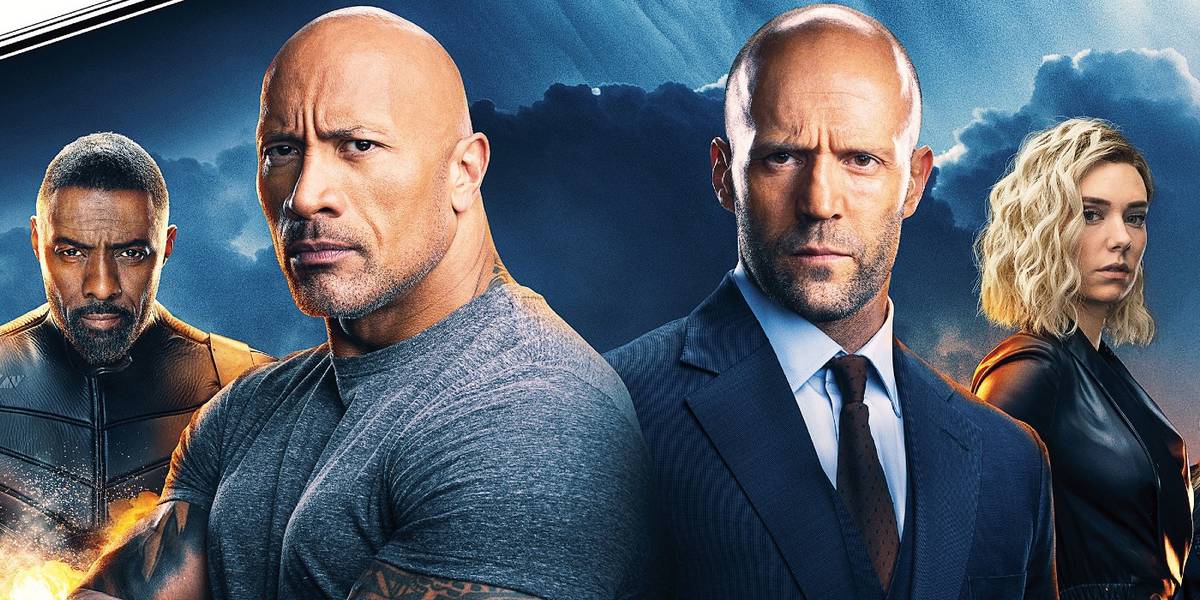“Deckard Shaw” (2026) — The Rogue’s Redemption
Nearly a quarter-century after his whirlwind debut in Fast & Furious Presents: Hobbs & Shaw (2019), Jason Statham returns as Deckard Shaw in his inaugural standalone feature, Deckard Shaw (2026). Once the ruthless mercenary with a code, this film takes the character from his rogue anti‑hero roots into a darker, more personal mission—one that expands his lore far beyond the adrenaline-fueled street chases and territory wars.
Following the events of Fast X, where Deckard formed a fragile familial bond with his brother Owen and team, Deckard Shaw begins in medias res with Deckard living off-grid in a secluded coastal town. But his solitude is shattered when an old nemesis, Valentina Cruz—a former black-ops operative played by Ana de Armas—escapes prison and launches attacks on global cyber‑weapon vaults. These vaults hold dangerous AI-driven tech capable of rewriting military targeting protocols.
Summoned reluctantly by Luke Hobbs (Dwayne Johnson, in a tight cameo), Deckard is forced back into the fold. But his motivations aren’t just patriotic; the latest breach has endangered his goddaughter, Eleanor “Nori” Shaw (a fierce breakout portrayal from newcomer Maya Zeralda). Nori, a 17-year-old tech prodigy, has unwittingly combined a prototype drone AI into her school’s network—and now Valentina wants to recruit or eliminate her.
Torn between paternal instincts and his mercenary past, Deckard embarks on a globe-trotting chase—from the neon nights of Hong Kong to the rugged fjords of Norway—teaming up with Nori, retired MI6 analyst Larissa Monroe (played by Gugu Mbatha-Raw), and reluctant ally Hobbs. The film’s action balance merges hand-to-hand combat, tactical infiltration scenes, and one standout sequence where Deckard fights through an avalanche-triggered ice tunnel.
In the climax, Deckard confronts Valentina aboard a semi-submersible in Arctic waters. The final battle is less about destruction and more about ideological clash—Deckard defends human agency over AI determinism, while Valentina champions a post-human world order. Deckard wins by sabotaging the AI core, but chooses mercy—offering Valentina a chance at reconciliation, echoing his own journey from villain to protector.
Deckard Shaw is a vibrant evolution of a fan-favorite anti-hero. Jason Statham delivers his trademark blend of stoic gruffness and unexpected tenderness, particularly in scenes with Nori. Maya Zeralda’s performance ensures this feels like a true passing of the torch—her emotional intelligence and technical genius create a dynamic counterpoint to Deckard’s muscle-and-instinct style.

Ana de Armas brings magnetic tension to Valentina. Though her motivations sometimes feel lightly sketched, their ideological conflict—human resilience vs. cyber ascendancy—is timely and well-framed. Gugu Mbatha-Raw supplies emotional grounding and strategic edge, completing a trio that feels balanced and compelling.
Directed by David Leitch, the movie doesn’t just deliver thrills—it elevates them. His trademark precision in stunt choreography is on full display, but here it’s matched by moments of quiet reflection: Deckard teaching Nori to drive, a silent campfire scene revealing his regrets, and a tender confession to Hobbs about brotherhood and redemption.
While the plot leans on genre tropes—rogue mission, ticking clock, AI apocalypse—its execution rises above familiarity. At 125 minutes, the pacing holds firm, with action peaks balanced by character-driven breaths. The tech world collision plays credibly, and the AI threats feel real enough to matter.
Verdict: Deckard Shaw is a successful leap from franchise supporting act to nuanced lead. It’s explosive, emotional, and surprisingly grounded. Fans of the Fast & Furious universe and action–thriller seekers alike will find much to enjoy. Most importantly, it proves that even the most hardened fighter can find purpose in protecting a new generation.
-1752030057-q80.webp)
-1752131281-q80.webp)

-1753237689-q80.webp)